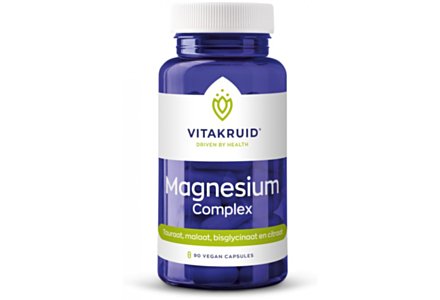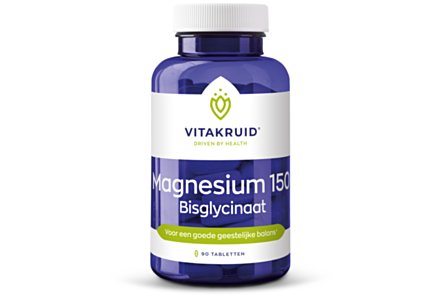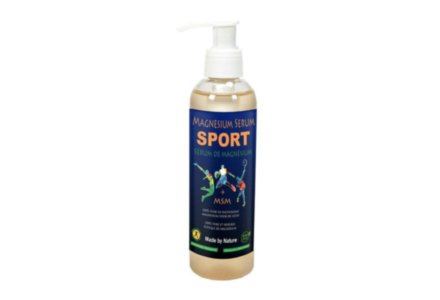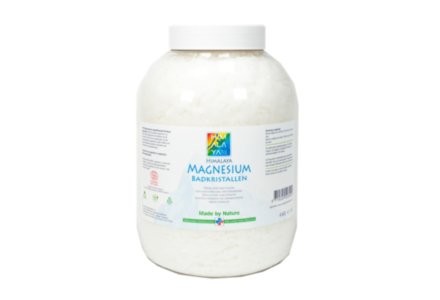
Whether you're training fanatically for a marathon or hitting the gym every week, your body makes high demands on itself. Did you know that magnesium plays a key role in your sports performance, muscle recovery and prevention of cramps? In this blog you will discover why magnesium is indispensable for athletes, which forms are most effective and how to optimally use this essential mineral for your recovery and results.
What is magnesium
Magnesium is an essential mineral found in the human body that plays a crucial role in more than 300 biochemical reactions. It is involved in important processes such as muscle and nerve function, energy production, protein synthesis, and the maintenance of strong bones. About 60% of the magnesium in your body is found in your bones, while the rest is distributed throughout your muscles, tissues and fluids. Although magnesium is found in many foods, such as green leafy vegetables, nuts, seeds, and whole grains, many people do not get enough magnesium from their daily diet. This makes magnesium supplementation a popular choice, especially for people who are active and want to improve their performance.
Magnesium is particularly important for athletes because it has a direct impact on muscle function and recovery after exercise. It helps regulate muscle contractions, prevent muscle cramps, and promote overall energy production. As a result, magnesium plays a key role in both performance and recovery of the body after physical activity.
Magnesium and sports performance
Magnesium plays a vital role in supporting athletic performance, especially when it comes to energy production and muscle function. When you exercise, your body consumes energy, primarily in the form of ATP (adenosine triphosphate), the primary energy carrier in your cells. Magnesium is necessary for the activation of ATP, which means that without enough magnesium, your muscles can work less efficiently, which can reduce your performance.
In addition, magnesium affects muscle contractions and relaxation. The mineral helps regulate the balance of calcium and potassium, which are essential for normal muscle function. Magnesium deficiency can lead to muscle cramps and fatigue, negatively affecting your workout. It is therefore important for athletes to include enough magnesium in their diet or through supplements to ensure optimal muscle function and performance during intense training or competition.
Magnesium and muscle recovery
After an intense workout or physical activity, your body needs time to recover and regenerate. Magnesium plays a crucial role in this recovery process. The mineral not only helps reduce muscle soreness, but also helps protect muscle tissue after heavy exercise. Magnesium supports protein synthesis, which is essential for muscle recovery and muscle growth. By speeding up this process, athletes can get back to their next workout faster.
In addition, magnesium helps prevent muscle cramps, a common problem in both amateur and professional athletes. Muscle cramps often occur due to an imbalance in the balance of electrolytes, such as calcium, potassium and magnesium. Magnesium deficiency can exacerbate this imbalance, leading to painful and bothersome cramps. Magnesium helps the muscles relax and prevents the pain associated with cramps, so you recover faster and your workout is less affected by muscle problems.
The mineral may also play a role in improving sleep quality, which is essential for recovery. Good sleep gives your body a chance to recover, repair muscle tissue, and replenish energy reserves. Magnesium has a calming effect on the nervous system, which helps you fall asleep better and improve sleep quality.
Recommended dosage and timing
The proper dosage and timing of magnesium supplements can make a big difference in how effective they are for athletes. The recommended daily allowance (RDA) of magnesium for adults varies, but is usually between 300 and 400 mg per day, depending on age and gender. For athletes who put extra stress on their bodies, the need for magnesium may be higher. In such cases, a higher dosage day may be appropriate, but it is always important to consult with a physician or nutritionist.
As for the timing of magnesium supplements, there are different approaches depending on the purpose. For muscle recovery and relaxation after a workout, it is ideal to take magnesium right after your workout. This helps your muscles recover faster and reduces the risk of cramps. Magnesium can also be taken before bed, as its relaxing effect can help improve sleep, which is essential for recovery.
Magnesium supplements in various forms
Magnesium supplements come in two main types: organic and inorganic forms. The main difference between these two types is the way the magnesium is bound to other substances, which affects its absorption in the body and its effectiveness. The following briefly explains both types and discusses the most common forms of magnesium in each type.
Organic forms of magnesium
Organic forms of magnesium are bound to amino acids or other organic molecules, which means they are often better absorbed by the body. These forms are usually easier for the body to digest and cause fewer side effects such as stomach upset. Organic forms of magnesium are usually the best choice for athletes who want to see quick results in terms of muscle recovery and relaxation.
Magnesium bisglycinate: This form is bound to two molecules of glycine, an amino acid. It is very well absorbed by the body because it can easily pass through the intestinal wall. Magnesium bisglycinate is particularly gentle on the stomach, making it ideal for people prone to stomach upset. It promotes relaxation, helps improve sleep quality and supports muscle recovery after intense exercise.
Magnesium Citrate: This form is bound to citric acid, which increases its bioavailability. Magnesium citrate is quickly absorbed by the body, making it effective for promoting muscle recovery and reducing muscle cramps. However, it also has a mild laxative effect, which may be helpful for some people.
Magnesium taurate: This form is bound to the amino acid taurine, which occurs naturally in the body. Magnesium taurate is often praised for its calming and relaxing effects, making it ideal for people who suffer from stress or sleep problems.
Inorganic forms of magnesium
Inorganic forms of magnesium are bound to mineral substances, such as oxides or salts. These forms are often less efficiently absorbed by the body than organic forms, but can still be useful for certain purposes.
Magnesium oxide: This is a commonly used form of magnesium, but it has lower bioavailability compared to organic forms. Magnesium oxide is often used to relieve constipation, but it may be less effective for muscle recovery and promoting relaxation.
Magnesium sulfate (Epsom salt): Magnesium sulfate is often used in bath salts, where it is absorbed through the skin. This inorganic form of magnesium is ideal for relieving muscle pain and promoting relaxation after a workout. It is less suitable for ingestion, but may be an excellent choice for those who prefer transdermal absorption.
Magnesium oil (transdermal form)
Although magnesium oil is not a dietary supplement in the traditional sense, it provides an excellent way to absorb magnesium through the skin. Magnesium oil is actually a liquid solution of magnesium chloride that is absorbed through the skin. It can be applied directly to muscles, which is especially useful for people who want to support specific muscle groups after a hard workout.
Magnesium oil is a popular choice for athletes suffering from muscle soreness or cramps. By applying it to sore or tired muscles, it can help reduce tension and promote recovery. Using magnesium oil can also help improve sleep quality, as the relaxing effect of magnesium spreads quickly through the skin. For those who have difficulty swallowing pills or powders, magnesium oil is an ideal alternative option.
Conclusion: magnesium as an essential mineral for athletes
Magnesium is an essential mineral that plays an important role in sports performance, muscle recovery and the prevention of cramps. For athletes, it is crucial to get enough magnesium to support the body optimally. Various forms of magnesium are available in the form of supplements. But it is also possible to administer magnesium externally through the skin. In short, a well-chosen magnesium supplement can be a valuable addition to your athletic routine.
At Meditech Europe, we offer a wide range of high-quality magnesium products to suit the needs of both recreational athletes and professional athletes. Check out our selection and find out which form of magnesium suits you best!
Wondering which form of magnesium best suits your sports goals?
View our extensive range or contact us for personal advice!
Disclaimer:
Dietary supplements are no substitute for a varied, balanced diet and a healthy lifestyle. Do not exceed the recommended daily dosage. When in doubt or when using medication, always consult a doctor or expert for advice.









